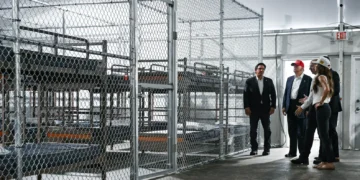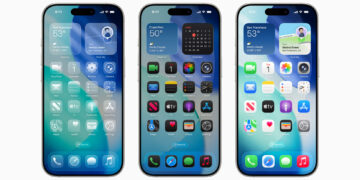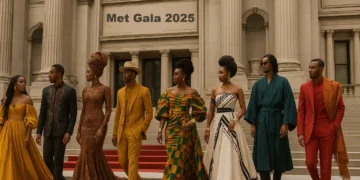The recent surge in TikTok videos claiming to sell luxury goods directly from Chinese factories has sparked intense debate about the authenticity and quality of these products. One of the most coveted luxury items being sold through these channels is the Hermès Birkin bag.
Platforms like DHgate have become go-to destinations for those seeking luxury knockoffs, including replicas of the iconic Hermès Birkin. But the question remains: are these products genuine, or are they sophisticated fakes?

As the allure of owning a luxury item at a fraction of the cost is tempting, potential buyers must navigate the complex world of online luxury goods sales. Understanding the implications of purchasing a Hermès Birkin replica is crucial.
Key Takeaways
- DHgate is a platform where luxury knockoffs, including Hermès Birkin replicas, are sold.
- The authenticity of products sold directly from Chinese factories is often questionable.
- Buying luxury replicas can have legal and ethical implications.
- Research is crucial before making a purchase on platforms selling luxury goods.
- Understanding the market for luxury knockoffs can help buyers make informed decisions.
The Allure of Luxury at a Fraction of the Cost
The allure of luxury goods, such as Birkin bags, lies in their exceptional craftsmanship and the status they confer. Luxury handbags are not just accessories; they are symbols of success, taste, and style.

Why Birkin Bags Are So Coveted
Birkin bags are highly prized for their superior quality, timeless design, and the prestige associated with owning one. The brand’s commitment to using only the finest materials and meticulous craftsmanship contributes to their allure.
As a result, Birkin bags have become a benchmark of luxury in the world of handbags, making them highly sought after by fashion connoisseurs.
| Feature | Authentic Birkin | Replica Birkin |
|---|---|---|
| Material | High-quality leather | Synthetic or lower-grade leather |
| Craftsmanship | Meticulous attention to detail | Often shows signs of haste or lesser quality control |
| Price | Very high (often $7,000+) | Significantly lower (often under $500) |
The Promise of “Factory Direct” Luxury
The concept of buying luxury goods “factory direct” promises consumers the opportunity to own high-end products at significantly lower prices. This model claims to eliminate intermediary costs, passing the savings on to the buyer.
However, the authenticity and quality of such products can be a concern, as they may be luxury brand counterfeits rather than genuine articles. Consumers seeking affordable luxury handbags must weigh the benefits against potential risks.
Can You Really Buy a Birkin Direct From a Chinese Factory?
The idea of ‘factory direct’ luxury goods, including Birkin bags, from China is a tantalizing prospect, but what does it really mean? Many luxury goods are indeed manufactured in China, but the authenticity and quality of products sold directly from Chinese factories are often questionable.

The Factory Direct Myth Explained
When consumers consider buying a Birkin bag directly from a Chinese factory, they often assume they’re getting an authentic product at a lower price due to the elimination of intermediaries. However, this assumption is frequently misguided. The term “factory direct” can be misleading, as it doesn’t necessarily imply that the product is authentic or of high quality.
Most “factory direct” Birkin bags sold online are actually replicas, produced with the intention of mimicking the real thing but lacking the craftsmanship and materials of authentic Hermès products.
What You’re Actually Getting When Buying “Direct”
When purchasing a Birkin bag from a Chinese factory, it’s crucial to understand what you’re actually getting. In most cases, these bags are not authentic Hermès products but rather high-quality replicas.
Quality Differences Between Authentic and Replica Birkins
Authentic Birkin bags are renowned for their exceptional craftsmanship, using high-quality materials and meticulous attention to detail. Replicas, on the other hand, may appear similar at first glance but often lack the finesse and durability of the real thing.
The Reality of “Factory Surplus” Claims
Some sellers claim that their products are “factory surplus” or “overstock” from authentic luxury manufacturers. However, these claims are often false, used to justify the sale of replica products at premium prices.
As the
“The luxury goods industry is plagued by counterfeiters who produce high-quality replicas, making it difficult for consumers to distinguish between authentic and fake products.”
Understanding the differences between authentic luxury goods and replicas is crucial for making informed purchasing decisions, especially when considering buying directly from Chinese factories.
Understanding DHgate and Its Rise to Popularity
DHgate has revolutionized the online shopping landscape, particularly for those seeking luxury goods at affordable prices. As a B2B China sourcing app, DHgate has gained immense popularity worldwide, especially among consumers looking for affordable luxury goods.
What Is DHgate? App Surges in Popularity
DHgate is an online marketplace that connects buyers with Chinese suppliers. The platform has seen a significant surge in popularity due to its vast array of products at competitive prices. DHgate offers a wide range of products, including electronics, clothing, and luxury knockoffs.
The app’s user-friendly interface and diverse product offerings have contributed to its growing user base. DHgate’s pricing strategy is one of its most appealing features, offering products at fractions of the cost of authentic luxury goods.
How DHgate Gained Traction in Western Markets
DHgate’s expansion into Western markets can be attributed to several factors, including its competitive pricing and diverse product range. The platform has become particularly popular among younger generations who are active on social media platforms like TikTok.
The Appeal of DHgate’s Price Points
- Affordability: DHgate offers luxury goods at significantly lower prices than authentic brands.
- Variety: The platform provides access to a wide range of products, including replica luxury goods.
- Accessibility: DHgate’s online nature makes it easily accessible to a global audience.
User Interface and Shopping Experience
The user interface of DHgate is designed to be intuitive and user-friendly, making it easy for customers to navigate and find products. The shopping experience is further enhanced by customer reviews and product ratings, helping buyers make informed purchasing decisions.
As DHgate continues to grow in popularity, its influence on TikTok fashion trends and the broader luxury goods market becomes increasingly significant. Understanding DHgate and its role in the online marketplace provides valuable insights into the evolving landscape of luxury goods consumption.
The Anatomy of a Hermès Birkin Replica
Replica Birkin bags have become increasingly sophisticated, making it challenging for consumers to distinguish them from authentic ones. The quality of these replicas can vary significantly, with some being almost indistinguishable from the real thing.

Quality Spectrum of Birkin Replicas
The quality of Birkin replicas can range from low-grade to high-grade. Low-grade replicas are often easily identifiable due to their poor craftsmanship and materials. On the other hand, high-grade replicas are made with attention to detail and can closely mimic the authentic Birkin bags. Understanding this spectrum is crucial for consumers who are considering purchasing a replica.
Materials Used in Authentic vs. Replica Birkins
One of the key differences between authentic Hermès Birkin bags and their replicas lies in the materials used. Authentic Birkins are made from high-quality leather, such as Togo or Clemence, which are renowned for their durability and luxurious feel. In contrast, replicas often use lower-grade materials that may not offer the same longevity or aesthetic appeal. However, high-quality replicas can use materials that closely resemble those used by Hermès, making them more convincing.
When evaluating a replica Birkin, it’s essential to examine the materials and craftsmanship closely. While some replicas may look convincing at first glance, a closer inspection can reveal differences in stitching, hardware, and overall construction.
Inside China’s Counterfeit Luxury Industry
The counterfeit luxury market in China is a complex web of factories, distributors, and online platforms that cater to a global demand for affordable luxury goods. This industry has seen significant growth, driven by consumer desire for luxury brands at a fraction of the cost.
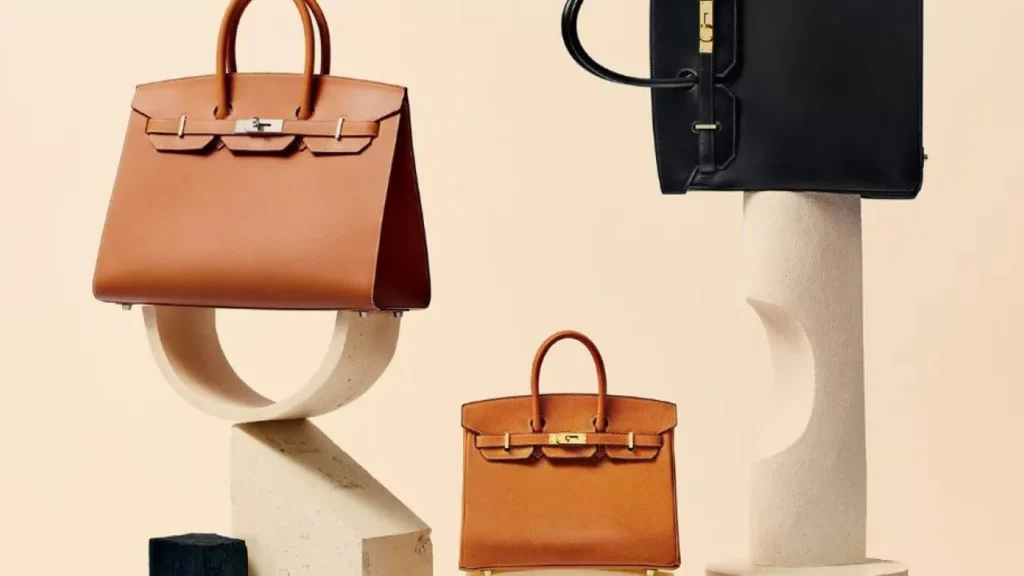
The Scale of Luxury Counterfeiting in China
China is a significant hub for counterfeit luxury goods, with many factories producing high-quality replicas. The scale of this industry is vast, with counterfeit goods being distributed through various channels, including online marketplaces and physical stores. Some key statistics highlighting the scale include:
- A substantial portion of global counterfeit goods originates from China.
- The counterfeit luxury market is worth billions of dollars annually.
- Counterfeit goods are not only sold domestically but are also exported worldwide.
How Replica Factories Operate
Replica factories in China operate with varying levels of sophistication. Some factories specialize in producing high-quality replicas that are difficult to distinguish from authentic luxury goods. These factories often have skilled labor and use high-grade materials to achieve a level of quality that appeals to consumers looking for affordable alternatives.
The operation of these factories involves several key steps, including design replication, material sourcing, and distribution. Understanding how these factories work is crucial to grasping the complexity of the counterfeit luxury industry.
Key aspects of replica factory operations include:
- Design Replication: Factories closely monitor luxury brand releases to replicate designs accurately.
- Material Sourcing: High-quality materials are sourced to mimic the authentic products.
- Distribution Channels: Replicas are distributed through various channels, including online platforms and physical markets.
The US-China Trade War and Its Impact on Luxury Goods
The ongoing US-China trade war has significantly impacted various markets, including luxury goods. The tariffs imposed on Chinese imports have created a ripple effect, influencing consumer behavior and market dynamics.

The trade war between the US and China has led to a complex situation for luxury goods, particularly those that are manufactured in China or rely on Chinese materials. Understanding the tariffs and their implications is crucial for consumers and businesses alike.
Understanding the Tariffs on Chinese Imports
The tariffs imposed on Chinese imports have been a key aspect of the trade war. These tariffs have increased the cost of importing goods from China, affecting various industries, including the luxury goods sector.
- Tariffs on raw materials used in luxury goods manufacturing have increased production costs.
- Finished luxury goods imported from China are subject to additional tariffs, making them more expensive for consumers.
- The tariffs have also led to a shift in manufacturing locations, with some companies exploring alternatives to China.
The increased costs due to tariffs are often passed on to consumers, making luxury goods more expensive. This has led to a change in consumer behavior, with some opting for alternative, more affordable luxury options.
Why DHgate Might Not Help Against Tariffs
DHgate, a popular online platform for purchasing luxury replicas, might not provide a viable workaround against the tariffs. While DHgate offers a wide range of luxury replicas at competitive prices, the platform is not immune to the effects of the trade war.
Key considerations:
- DHgate’s suppliers are often based in China, meaning that goods shipped from these suppliers are subject to US tariffs.
- The platform’s pricing strategy may need to adapt to the new tariff landscape, potentially affecting the attractiveness of its offerings.
As the trade war continues, consumers and businesses must navigate the changing landscape, considering the implications of tariffs on their purchasing decisions.
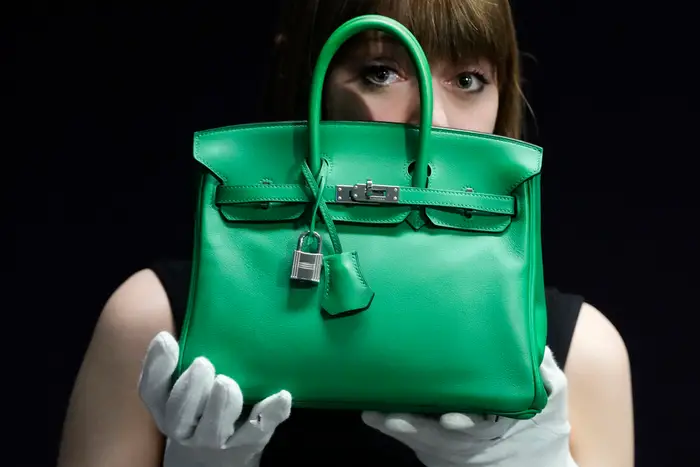
How the US-China Trade War Took to TikTok
As the US-China trade war continues to escalate, a new battleground has emerged: TikTok. The popular social media platform has become a surprising arena for the conflict, with users on both sides using the app to shape consumer sentiment and influence the narrative around luxury goods.
The US-China trade war has been a defining issue of recent years, with far-reaching implications for global trade and commerce. TikTok, with its massive user base and influencer-driven model, has become an unlikely player in this conflict.
TikTok as a Battleground for Consumer Sentiment
TikTok has become a critical platform for shaping consumer sentiment, particularly among younger generations. The app’s short-form video format and hashtag challenges have made it an ideal space for influencers and brands to promote products and shape consumer attitudes.
In the context of the US-China trade war, TikTok has become a battleground for consumer sentiment. Users are using the platform to “expose” the origins of luxury goods in China, with many videos going viral and sparking heated debates.
| Platform | User Engagement | Influencer Impact |
|---|---|---|
| TikTok | High | Significant |
| Medium | Moderate | |
| Low | Limited |
Europe’s Luxury Fashion Houses Caught in the Middle
European luxury fashion houses, such as Hermès and Louis Vuitton, have found themselves caught in the middle of the US-China trade war. As the conflict escalates, these brands are facing increased scrutiny and pressure from consumers on both sides.
TikTok has become a key platform for these brands, with many using the app to promote their products and engage with consumers. However, the trade war has created a challenging environment for these brands, with tariffs and trade restrictions impacting their operations and profitability.
The impact of the trade war on European luxury fashion houses is complex and multifaceted. While some brands have managed to adapt to the new trade environment, others have struggled to cope with the increased costs and regulatory challenges.
TikTok’s Role in Popularizing Chinese Replicas
As TikTok continues to shape consumer behavior, its role in popularizing Chinese replicas cannot be overlooked. The platform’s influence on fashion trends has been significant, with many users turning to it for the latest styles and must-haves.

TikTok’s algorithm, which prioritizes engaging content, has given rise to a new phenomenon: viral “factory direct” shopping hauls. These hauls, often featuring luxury brand counterfeits from DHgate, have become incredibly popular, showcasing a wide array of replica products.
Viral “Factory Direct” Shopping Hauls
The “factory direct” shopping hauls on TikTok have become a sensation, with many creators showcasing their purchases from DHgate. These hauls typically feature a variety of luxury replicas, from handbags to watches, all purportedly bought directly from Chinese factories.
- Showcasing affordable luxury replicas
- Highlighting the quality and craftsmanship of counterfeit goods
- Encouraging viewers to try their luck with “factory direct” purchases
How Influencers Drive the Replica Market
Influencers on TikTok play a crucial role in driving the demand for DHgate luxury knockoffs. By showcasing these products in their videos, often with positive reviews and tutorials on how to purchase from DHgate, they inadvertently promote the counterfeit market.
- Influencers showcase DHgate products, making them more accessible to their followers.
- They provide tutorials on how to navigate DHgate and avoid scams.
- Their endorsements, even if unintentional, lend credibility to the counterfeit luxury goods market.
The interplay between TikTok’s viral content, influencer marketing, and the availability of counterfeit goods on platforms like DHgate has created a thriving ecosystem for luxury replicas. Understanding this dynamic is crucial for both consumers and luxury brands alike.
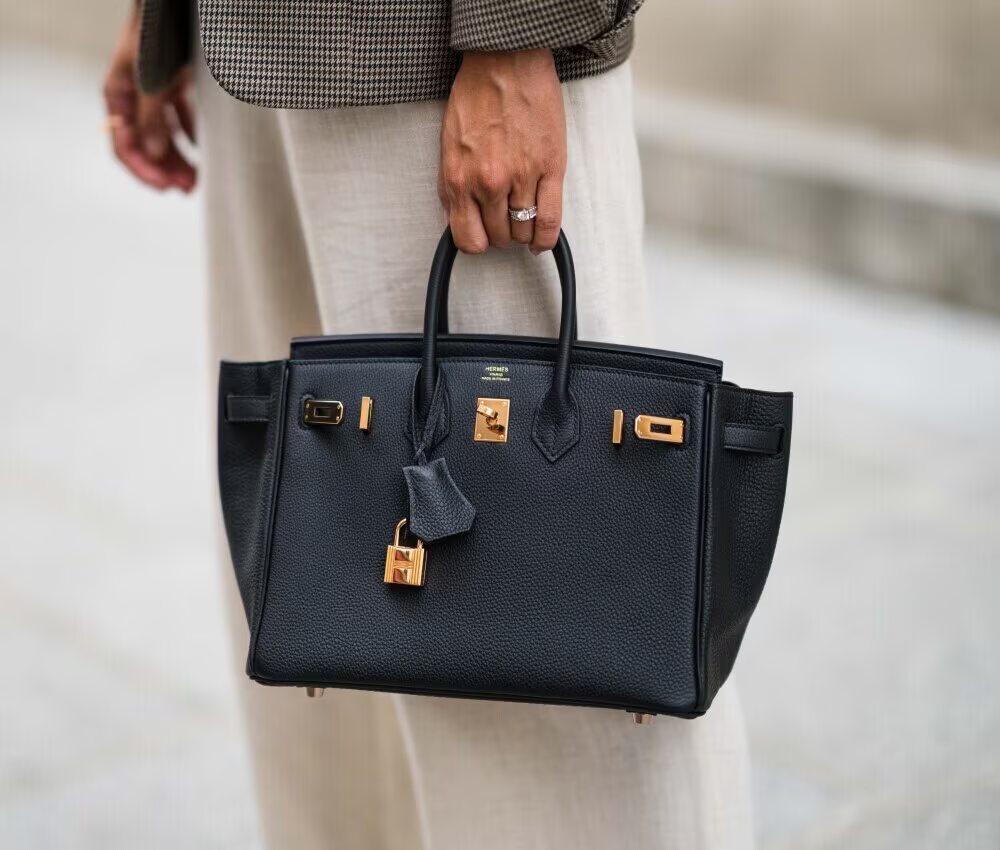
DHgate Luxury Knockoffs: What to Expect
The world of cheap designer bags online is vast, with DHgate offering a wide range of luxury replicas. When shopping on DHgate, it’s crucial to understand the types of products available and the factors that influence their quality.
Common Categories of Luxury Replicas on DHgate
DHgate is known for its extensive selection of luxury knockoffs, catering to various tastes and budgets. The most common categories include:
- Luxury handbags from brands like Hermès, Chanel, and Louis Vuitton
- High-end watches from brands such as Rolex and Omega
- Designer clothing and accessories, including shoes and jewelry
These categories are popular among consumers looking for affordable alternatives to authentic luxury goods.
Price Points and Quality Correlation
The price of luxury replicas on DHgate can vary significantly, and generally, there’s a correlation between the price point and the quality of the item.
Entry-Level Replicas: What $50-$100 Gets You
At the lower end of the spectrum, replicas priced between $50-$100 typically offer basic quality. These items might resemble the authentic versions superficially but often lack in craftsmanship and material quality. For instance, an entry-level Hermès Birkin replica might have visible stitching errors or use lower-grade leather.
High-End Replicas: The $300+ Market
On the other end, high-end replicas priced at $300 or more often boast superior craftsmanship and closer attention to detail. These replicas might use higher quality materials and exhibit fewer flaws, making them more appealing to buyers seeking a more authentic look and feel.
Understanding these dynamics is key to navigating DHgate’s marketplace for luxury knockoffs. By knowing what to expect at different price points, consumers can make more informed purchasing decisions.
Is DHgate Legit? Examining the Platform’s Credibility
Consumers are increasingly questioning whether DHgate is a legitimate platform for purchasing high-end luxury goods. The platform’s popularity has grown significantly, with many users drawn to its promise of “china factory direct sales” and affordable luxury handbags. However, the prevalence of counterfeit products on the site has raised concerns about its credibility.
To assess DHgate’s legitimacy, it’s essential to examine its business model and practices. DHgate operates as an online marketplace, connecting buyers with various sellers, mostly based in China. While this model allows for a wide range of products to be offered, it also means that DHgate doesn’t directly control the quality or authenticity of the goods being sold.
DHgate’s Business Model and Practices
DHgate’s business model is centered around facilitating transactions between buyers and sellers. The platform generates revenue through commission-based sales, with sellers paying fees to list and sell their products. While this model is common among online marketplaces, it also means that DHgate has a financial incentive to prioritize sales volume over product authenticity.
Some sellers on DHgate have been known to offer high-quality replicas that are often difficult to distinguish from authentic luxury goods. However, the prevalence of counterfeit products is a significant concern, as it can lead to legal and reputational risks for both buyers and the platform itself.
Customer Experiences and Reviews
Customer experiences on DHgate vary widely, with some buyers reporting positive interactions with sellers and receiving high-quality products. However, others have reported receiving counterfeit or low-quality items, or experiencing difficulties with returns and refunds.
Reviews and ratings on DHgate are mixed, reflecting the diverse range of sellers and products on the platform. While some buyers have praised the platform for its convenience and affordability, others have expressed concerns about the risks associated with buying counterfeit luxury goods.
The Legal Implications of Buying Counterfeit Luxury Goods
Purchasing counterfeit luxury goods may seem like a harmless act, yet it carries substantial legal implications that buyers should be aware of. The world of luxury counterfeits is complex, involving not just the sale of fake goods but also a broader context of intellectual property laws and international trade regulations.
Intellectual Property Laws and Enforcement
Intellectual property (IP) laws are designed to protect the rights of creators and manufacturers, including luxury brands. These laws prohibit the production, distribution, and sale of counterfeit goods. In the United States, for instance, trademark laws are enforced by various agencies, including U.S. Customs and Border Protection and the Federal Trade Commission. Counterfeit goods infringe on trademarks, copyrights, and patents, leading to legal consequences for those involved in their sale and distribution.
The enforcement of IP laws has become more stringent, especially in the context of the US-China trade war. Tariffs and trade agreements have impacted how counterfeit goods are handled at borders. Despite these efforts, counterfeit luxury goods continue to flood markets, often through online platforms.
Potential Consequences for Buyers
While the focus is often on the sellers of counterfeit goods, buyers also face potential legal consequences. In some jurisdictions, purchasing counterfeit goods can lead to fines or penalties. For example, in certain countries, knowingly buying counterfeit products can be considered a criminal offense.
Moreover, beyond legal penalties, buying counterfeit goods supports a market that harms legitimate businesses and can lead to job losses in industries affected by counterfeiting. Consumers should be aware of these implications when considering the purchase of luxury goods at suspiciously low prices.
The Ethical Considerations of Supporting Counterfeit Markets
Supporting counterfeit markets raises significant ethical concerns that affect various stakeholders. The production and sale of counterfeit luxury goods, such as replica Hermès Birkin bags, have far-reaching implications that extend beyond the consumer and the brand being counterfeited.
The allure of affordable luxury often tempts consumers, but it’s crucial to consider the broader impact of such purchases. Counterfeit goods can undermine the integrity of luxury brands, potentially damaging their reputation and financial stability.
Impact on Luxury Brands and Artisans
Luxury brands invest heavily in craftsmanship, quality, and brand heritage. Counterfeit products not only erode the brand’s market share but also dilute the brand’s value. Moreover, artisans who create authentic luxury goods are affected as their work is devalued by the presence of cheaper, counterfeit alternatives.
- Luxury brands suffer financial losses due to counterfeit sales.
- Artisans face diminished opportunities as counterfeits replace authentic products.
- Brand reputation is tarnished by the prevalence of counterfeit goods.
Labor Practices in Counterfeit Manufacturing
The production of counterfeit goods often involves questionable labor practices. Many counterfeit manufacturing operations are linked to exploitative labor conditions, where workers are subjected to long hours, low wages, and unsafe working environments.
- Exploitation of workers in counterfeit manufacturing.
- Lack of regulatory compliance in counterfeit production facilities.
- Potential health risks associated with the materials used in counterfeit goods.
In conclusion, the ethical considerations surrounding counterfeit luxury goods are complex and multifaceted. Consumers must weigh the appeal of lower prices against the potential harm caused to luxury brands, artisans, and workers in counterfeit manufacturing.
Affordable Alternatives to Counterfeit Luxury
For those seeking luxury handbags without the hefty price tag, there are alternatives to counterfeit goods that offer both quality and affordability. Consumers can now explore options that not only meet their desire for luxury but also align with their budget constraints.
The market has seen a rise in affordable luxury handbags that cater to the growing demand for high-quality, stylish products without the hefty price tag associated with luxury brands.
Authentic Pre-Owned Luxury Options
One viable alternative to counterfeit luxury goods is authentic pre-owned luxury. This market has grown significantly, offering consumers access to genuine luxury products that have been previously owned or used.
| Platform | Description | Price Range |
|---|---|---|
| The RealReal | Luxury consignment store offering authenticated pre-owned designer goods. | $200 – $10,000+ |
| Vestiaire Collective | Peer-to-peer marketplace for pre-owned luxury fashion. | $100 – $5,000+ |
| 1stdibs | Luxury online marketplace for fine antique and vintage goods, including handbags. | $500 – $50,000+ |
High-Quality Designer-Inspired Brands
Another alternative is designer-inspired brands that create products echoing the style and aesthetic of luxury brands without infringing on trademarks. These brands offer affordable luxury handbags that are both stylish and of high quality.
Examples include brands like Cate + Chloe and Mansur Gavriel, which offer stylish, high-quality handbags inspired by luxury trends but at a more accessible price point.
How to Spot a Fake Birkin: Expert Tips
The Hermès Birkin is one of the most counterfeited luxury handbags, making it crucial for buyers to know how to verify authenticity. Counterfeiters have become increasingly sophisticated, making it challenging even for experts to distinguish between real and fake Birkins.
Key Authentication Details to Check
To authenticate a Hermès Birkin, one must examine several key details. First, inspect the hardware, looking for precise engravings and high-quality metals. Genuine Hermès hardware is robust and has a substantial feel to it. Next, check the stitching; authentic Birkin bags have even, tight stitches with no loose threads.
Common Flaws in Replica Birkins
Replica Birkin bags often exhibit specific flaws that can be identified with a careful inspection. Two areas to focus on are hardware and stitching inconsistencies, as well as leather quality and texture differences.
Hardware and Stitching Inconsistencies
Fake Birkin bags frequently have hardware that is either too heavy or too light, and the engravings may be sloppy or misaligned. The stitching on replicas can be uneven, with loose threads or inconsistent tension. Checking these details can help you spot a counterfeit.
Leather Quality and Texture Differences
The leather used in genuine Hermès Birkin bags is of exceptionally high quality, with a rich texture and suppleness. Replicas often use cheaper leather that lacks the depth and softness of authentic Hermès leather. Running your hand over the bag can help you detect if the leather feels off.
Conclusion: Navigating the World of Luxury and Replicas
Navigating the world of luxury and replicas requires a deep understanding of the market’s complexities, including the risks and benefits associated with different purchasing options. The question, “can you really buy a Birkin direct from a Chinese factory?” highlights the intrigue surrounding luxury brand counterfeits and the allure of affordable luxury handbags.
Throughout this article, we’ve explored the intricacies of the luxury replica market, from the rise of DHgate to the implications of buying counterfeit goods. While the promise of “factory direct” luxury is enticing, it’s crucial to understand what you’re actually getting and the potential consequences of your purchase.
As the luxury market continues to evolve, being informed is key. Whether you’re seeking authentic luxury or considering affordable alternatives, understanding the nuances of the market can help you make more informed decisions. By being aware of the differences between authentic luxury handbags and replicas, you can navigate this complex landscape with confidence.
FAQ
Can you really buy an authentic Hermès Birkin bag directly from a Chinese factory?
It’s highly unlikely to buy an authentic Hermès Birkin bag directly from a Chinese factory, as Hermès has strict distribution channels and manufacturing processes. Most “factory direct” claims on platforms like DHgate are likely selling replicas.
What is DHgate, and is it a legitimate platform?
DHgate is an online marketplace that connects buyers with Chinese suppliers. While it’s a legitimate platform, it’s also known for hosting sellers who offer counterfeit luxury goods, including replica Birkin bags.
How can I spot a fake Birkin bag?
To spot a fake Birkin bag, look for key authentication details such as the Hermès logo, stitching quality, and material authenticity. Replicas often have misaligned logos, uneven stitching, and low-quality materials.
What are the risks of buying counterfeit luxury goods?
Buying counterfeit luxury goods can result in receiving low-quality products, and in some cases, it may also be a violation of intellectual property laws, potentially leading to legal consequences.
Are there affordable alternatives to counterfeit luxury goods?
Yes, there are affordable alternatives to counterfeit luxury goods, such as authentic pre-owned luxury options and high-quality designer-inspired brands that offer similar styles at lower price points.
How has TikTok contributed to the popularity of Chinese replicas?
TikTok has played a significant role in popularizing Chinese replicas through viral “factory direct” shopping hauls and influencer marketing, which can drive demand for counterfeit luxury goods.
What is the impact of the US-China trade war on luxury goods?
The US-China trade war has resulted in tariffs being imposed on Chinese imports, which can affect the pricing and availability of luxury goods, including counterfeit products sold on platforms like DHgate.
Can DHgate help against tariffs imposed due to the US-China trade war?
DHgate might not be helpful against tariffs, as tariffs are imposed by governments on imported goods, and DHgate is merely a platform connecting buyers with suppliers.
What are the ethical considerations of supporting counterfeit markets?
Supporting counterfeit markets can have negative impacts on luxury brands, artisans, and labor practices in counterfeit manufacturing, raising ethical concerns for consumers.
What are the legal implications of buying counterfeit luxury goods?
Buying counterfeit luxury goods can result in legal consequences, as it may be a violation of intellectual property laws, and buyers may face penalties or fines.
Are DHgate luxury knockoffs worth the investment?
DHgate luxury knockoffs are often replicas that may not be worth the investment due to their potentially low quality and the risk of being counterfeit.
Can you trust customer reviews on DHgate?
While customer reviews on DHgate can provide insights, they should be taken with caution, as some reviews may be fake or misleading, and may not accurately reflect the product quality or seller reliability.








